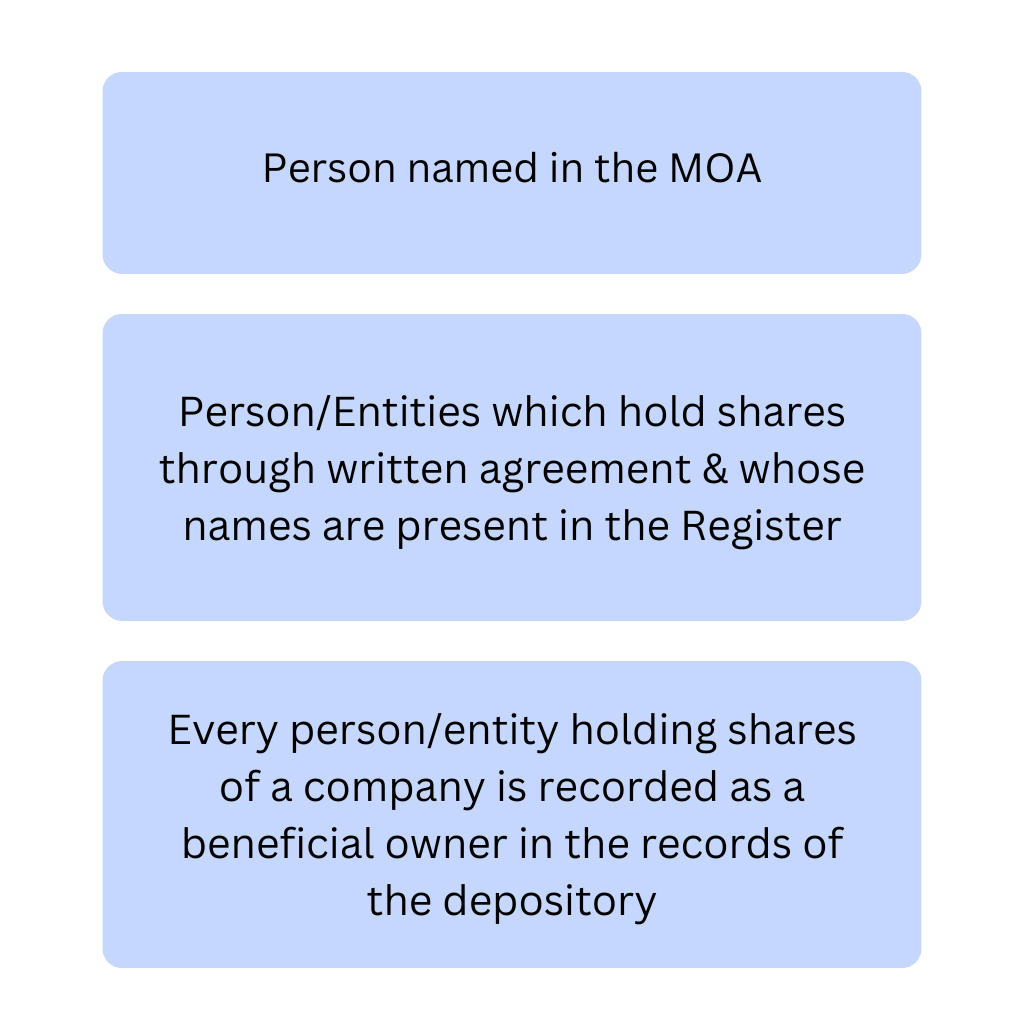Shareholders are a vital part of any company; be it private or public. Shareholders are often referred to as the members of the company. They give the company the funds required to undertake its business. The management of the company is bound to do what is favorable for the company and also that promotes the interest of the shareholders.
Shareholders have voting power which means that they also have a seat on the board of the company. Every significant decision that is made is conveyed to them. The reports of the business. They have the power to appoint directors, auditors and other people in key managerial positions.
In previous articles we have covered the documents required for obtaining DIN and the documents required for Director KYC. In this article, we answer the question: Who can become the shareholder of a Company?
Who can become a shareholder of a Company?
- Any person who is over the age of 18
- Since shareholding is basically a contract, any person who is eligible to enter into a contract in accordance with the Indian Contract Act, 1872 can hold shares of a company. It is important to note that the MoA and AoA of a company may have certain provisions debarring a person of certain trait from holding shares of the concerned company. If there isn’t any provision relating to this, the provisions laid down by the Indian Contract Act will apply.
- Any entity/body corporate/trust such as Private Limited Company, Public Limited Company, LLP, , etc.
- A company can hold the shares of another company if its (buying company’s) constitution articles allow. There are a few restrictions regarding the buying of one’s own shares or that of one’s holding company.
- Two or more people can jointly hold shares of a company. In case of a public company the joint members are individually considered while in a private company joint members are considered one single person.
- The State and Central Government can hold shares in a company through the Governor and the President respectively. The latter can nominate any person as a representative.
- An NRI or a foreign national can hold shares in compliance with FEMA and FDI guidelines
- A minor or a lunatic cannot hold shares of a company. In the minor’s case, guardian of the minor can hold shares in his/her name.

Classes of shareholders
Section 2(55) of the Companies Act, 2013 prescribes the following classes of shareholders:-
- Persons who have been named in the Memorandum of Association of the company. These are the initial promoters or founders of company as well as Angel Investors, Venture Capitalists or any other body corporates.
- Any person or entity which, in writing, has agreed to hold shares and the name of which has been entered in the Register of the Registrar of Companies.
- Every person holding shares of the company and whose name is entered as a beneficial owner in the records of a depository;

(Classes of Shareholders)
Conclusion
It is important for business owners to educate themselves regarding shareholders since they are a part of the decision making team. Shareholders form the core of the company. Good shareholders can bring a company from the path of survival to the path of growth. Shareholding happens only in companies as no other corporate entity issues shares.
If you are looking to incorporate your own company, reach out to us at Registration Arena where we help people kick-start their business with no hassle of compliance and without involving them with the hassle surrounding registration.









